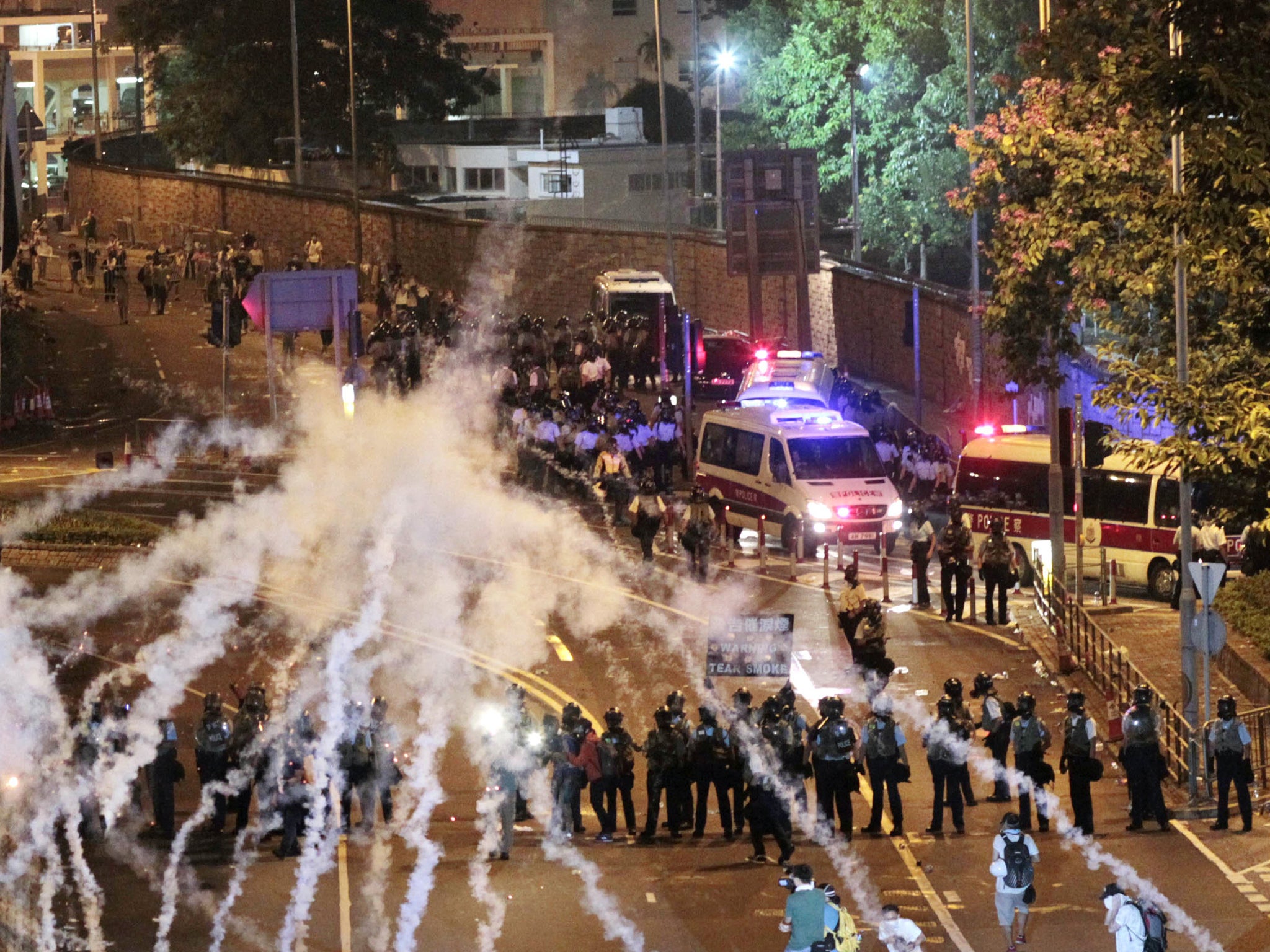The Hong Kong of 2014 is even less like China than the one we gave back
Comment

Your support helps us to tell the story
From reproductive rights to climate change to Big Tech, The Independent is on the ground when the story is developing. Whether it's investigating the financials of Elon Musk's pro-Trump PAC or producing our latest documentary, 'The A Word', which shines a light on the American women fighting for reproductive rights, we know how important it is to parse out the facts from the messaging.
At such a critical moment in US history, we need reporters on the ground. Your donation allows us to keep sending journalists to speak to both sides of the story.
The Independent is trusted by Americans across the entire political spectrum. And unlike many other quality news outlets, we choose not to lock Americans out of our reporting and analysis with paywalls. We believe quality journalism should be available to everyone, paid for by those who can afford it.
Your support makes all the difference.A little over 17 years ago I watched from a flyover with a view of Hong Kong harbour as Britain’s last governor, Chris Patten, with Prince Charles at his side, sailed away on the royal yacht Britannia.
A couple of hours earlier we had all been in the Wanchai Convention Centre as Hong Kong was handed over from 156 years of British rule to the People’s Republic of China.
Under the mantra of “one country, two systems”, Beijing had promised to honour the territory’s special status for the next 50 years. The Basic Law, hammered out in years of negotiations, said the “ultimate aim” was for Hong Kong’s chief executive, the governor’s replacement, to be elected by universal suffrage.
Now the flyover and the roads leading to the convention centre are blocked by thousands of demonstrators who say that Beijing has broken its promises. Many of them are too young to remember the handover, giving the lie to those who imagined that Hong Kong’s thirst for real democracy would gradually fade away.
On the stroke of midnight on 30 June 1997, China’s communist apparatchiks sacked Martin Lee QC and his fellow popularly-elected Democrats on Hong Kong’s legislative council, and appointed a puppet legislature instead. They could never have anticipated that the courtly Mr Lee, now 75, would be venerated a generation later by the demonstrators, who say that if people like him cannot seek to be chief executive, “one man one vote” is a sham.
The demonstrators have accepted a proposal of talks by the current chief executive, Leung Chun-ying, apparently putting on hold their threat to occupy government offices if he does not resign. But with Beijing looking over his shoulder, Mr Leung is not offering any real concessions. The Hong Kong authorities have backed down on previous occasions – in 2012 over plans for compulsory “patriotism” education in schools and in 2003 over a security bill which threatened to stifle freedoms – but this dispute questions the fundamental legitimacy of Beijing’s rule over the whole of China. That is why news of the protests has been so vigorously censored on the mainland.
The fond hope in 1997 was that over time an increasingly prosperous, confident and relaxed China would grow more like Hong Kong. Instead they have grown apart, to the point where Hong Kong’s annual commemorations of the last time students took to the streets demanding freedom, the 1989 Tiananmen slaughter in Beijing, are the only such events anywhere in China.
Precisely because China’s economy has developed so far since 1989, Beijing can scarcely afford another Tiananmen. But political development has not kept pace, and the crucial question is whether the country’s communist hierarchy has the vision and flexibility to overcome this threat to its authority without using violence.
Raymond Whitaker is a former Foreign Editor of The Independent on Sunday.
Join our commenting forum
Join thought-provoking conversations, follow other Independent readers and see their replies
Comments